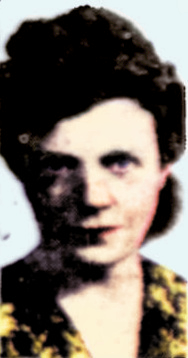The Pittsburgh Press (May 8, 1941)

I DARE SAY —
…
Signs of the times
…
By Florence Fisher Parry
The President will talk to us. He will speak from the quiet of his own room. It will be a fireside talk, it will have no audience but the unseen audience of the air.
Secretary Stimson chose this direct way to address the people of America. What he had to say was not punctuated by applause. The full significance of his words could be measured; there were no partisan interruptions to influence the listener.
It seems to me that this is the only true way to get a public message to the American people, these grave days. If the fever and passion of prejudice are to be kept down, then our spokesmen should seek the sanctuary of a quiet broadcasting room, and not, when they speak, be identified with any pressure group or organization.
The force and sincerity of Charles Lindbergh were robbed of much dignity because he was speaking before a wildly partisan audience, and the hysteria of that dubious audience communicated itself to the radio listeners.
If Secretary Stimson’s talk had been delivered under such circumstances, it would have lost immeasurably in force and distinction… We all remember all too painfully the President’s “knife in the back of his neighbor” speech, and the fatal emphasis upon the particular phrase. Now that the crisis is indeed upon us, let us pray that no public utterance from those in high places will be made to the accompaniment of cheers and boos.
Moreover, the moment an American citizen identifies himself on the air with any organization, his pronouncements lost something in personal force. For they cease to be purely a personal expression. They become the expression of the GROUP he represents; and the suspicion inevitably attaches to his words, however sincere, that he is being made the INSTRUMENT of something or other…
Surely, no fair American could have doubted the sincerity of Lindbergh when he spoke last Saturday night for the America First Committee. Yet, who is so naive as not to suspect that in his audience were planted enemy representatives, eager to exploit his sincerity to their own base uses.
Shameful suspicion
There could be no more unjust attitude of mind than that which attaches stigma to the convictions of Americans whose opinions differ from one’s own. Never in our history has there been so sharp a division between Americans in high places. And never, I dare say, has there been evinced a more fearless patriotism. Interventionists and isolationists – who is to say which men, in each camp, have been the more eloquent?
But this is evident: they all have been sincere. Lippman and Johnson, Pepper and Clark, Roosevelt and Lindbergh. The times are too acute for recriminations among these men; and when they are employed, the honest citizen has reason to feel sharp shame and disappointment. The statements and convictions of all sincere men – especially public men – will be used by their covert exploiters. Who cannot be called a cat’s paw for power politics, and his words twisted to suit some enemy?
But to question the motives or sincerity of these great citizens is the most contemptible recourse of the human mind. And should be peremptorily discouraged by all of us!
The figures on our defense output are impressive; and who so strong-hearted that he does not quake at sight of one of our latest fearful bombers? Yet the reminder inevitably comes up the heels of our admiration in complete ratio to the increased production of materials must there be an output of TRAINED MEN to master these monsters and make them realize their maximum performance.
Yes, the guns and planes may fill us with awe; but the manpower behind them does not. I look at a German soldier behind a gun – or in a tank or plane; and he looks formidable; he, too, is armor-plate! His posture, gait, his nose and jaw (all of his face that’s visible) conform to his grim task.
But look! Here is a picture of your son at Camp. His face is sunny, his collar is soft, his uniform fits comfortably over his relaxed body. He is eating out of a box from home; it is full of goodies and creature comforts. The camp hostess is arranging entertainment for him. His parents have come to visit him. His furlough has already become an urgent fixity.
It makes me think of France during the first year’s stalemate of the war. How pleasant to be a French soldier! How romantic, how heroic, how very, very nice!
They looked so trim and jaunty. They had so good a time! They lost that synchronization a body-and-machine, so perfectly realized in the German soldier.
Oh, the noble, the terrible planes! Oh, the tanks, the guns, the battleships! Here, here is our money! Take it, take all! Defense and more defense! Give, give till it hurts! But Billy dear, have you plenty of blankets and soap? Does the sweater fit? And did you get the cookies? And don’t forget to change your socks, dear, when they’re wet.
Oh, we’re still playing at war. We’re still acting a scene. No wonder those who visit us, fresh from the blood and rubble, get a funny little OPAQUE look in their eyes, as though they were drawing down a secret little curtain over them so as to shut out the awful evidence of our fond stupidity.